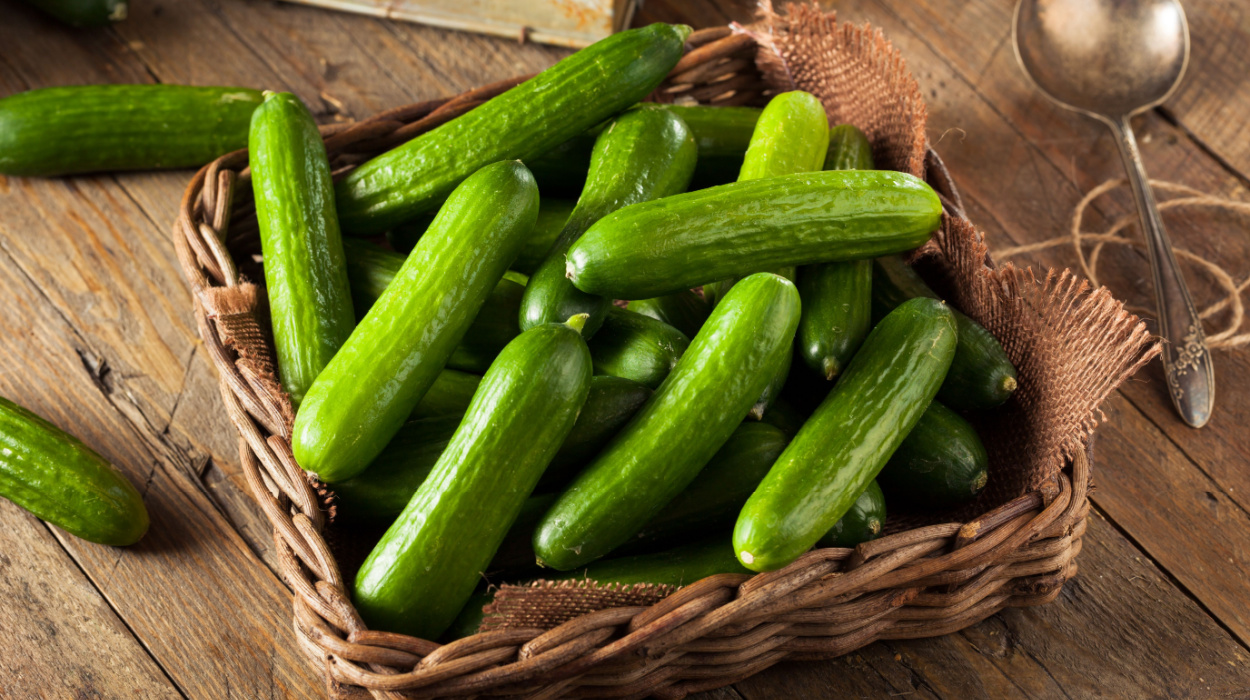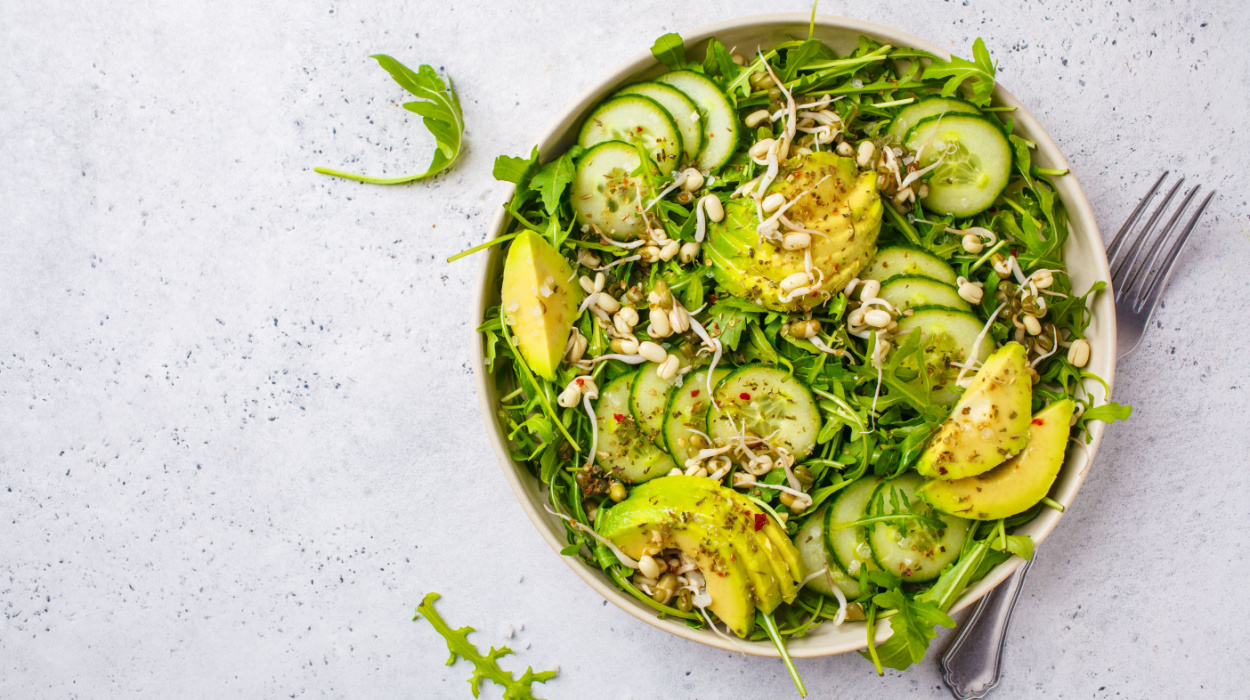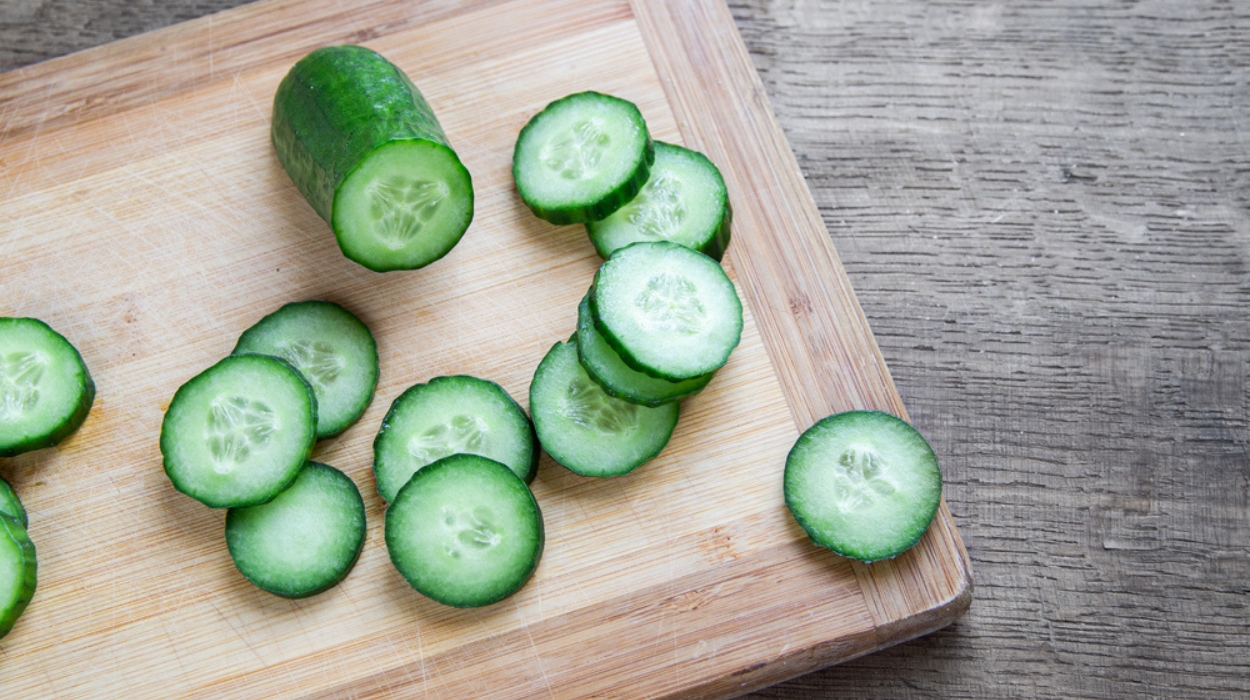How often do you see a cucumber outside of a salad? The question of whether cucumbers have negligible calories is a reasonable one. But if they contain calories, are cucumbers good for weight loss?
Actually, they can be easily incorporated into a healthy and balanced diet.
If you’re trying to burn calories by exercising and using supplements, consider also adding cucumbers to your weight loss diet. The cucumber diet for weight loss has been used in the past as a fad diet to lose weight quickly. It allows you to eat fewer calories and still feel full.
Cucumbers are more than just a topping on a salad. You may be surprised to learn that they also contain many vitamins and minerals. There are also many potential health benefits to eating cucumbers; they are not just a low-calorie food.
They are a nutritious, low-calorie option for anyone trying to lose weight on their daily diet.
Is Cucumber Good For Losing Weight?
Yes. Cucumbers are good for losing weight because they are low in calories. This helps people to reach the calorie deficit needed to lose weight. Cucumbers are also extremely nutritious. They can easily be added to any meal or enjoyed on their own.
Are Cucumbers Good For Weight Loss?

Yes, cucumbers are good for a weight loss diet. Cucumbers are a great food for weight loss because they are mostly made of water.[1] They also contain fewer calories than most foods, which makes it easier to enter a calorie deficit needed to lose weight.
Cucumbers are most effective for weight loss when consumed as part of a balanced diet. They should be eaten in conjunction with an exercise routine and not as a fad diet, such as the cucumber diet, which may lead to nutrient deficiencies.
Cucumbers are nutritious and versatile vegetables that make for a great low-calorie snack. What they lack in calories, cucumbers make up for in a variety of essential vitamins, phytonutrients, and minerals. It’s also easy to add them to any meal.
So, does cucumber make you lose weight? They do when they are used to replace alternative foods higher in calories.
Vegetarian diets, in general, are good for overall health because, unlike the saturated fat found in animal proteins, the fat that comes from oils and nuts is unsaturated;[2] however, it’s easy to overeat vegetarian dishes containing fruits, healthy fats, and complex carbs, so a healthy weight loss plan must consist of lean proteins to compliment the natural sugars and fats.
If weight loss is still proving difficult after adding cucumber to your diet, many supplements are designed to increase metabolism. The best supplements for weight will also contain essential minerals like magnesium, selenium, chromium, and zinc.
The Nutritional Value Of Cucumbers
As vegetables, cucumbers contain next to no fat or protein. Most of the calories in a cucumber are carbohydrates. The nutritional content of cucumbers will vary depending on their size, with one average cucumber being about 300 grams.
A 100-gram serving (one cup) of raw, unpeeled cucumbers contains the following:[1]
- Calories: 16 kcal.
- Calcium: 16 mg.
- Potassium: 170 mg.
- Iron: .25 mg.
- Sodium: 2 mg.
- Zinc: .2 mg.
- Vitamin K: 24 mcg.
- Magnesium: 10.1 mg
- Copper: .06 mg
Eating more than one cucumber a day is a great way to reach some of our recommended intakes of essential vitamins and minerals without adding excess calories.
Cucumbers are extremely hydrating. Their high water content helps prevent dehydration, which is the leading cause of constipation.[3] The fluids in a cucumber aid in regular bowel movements by allowing the colon to function properly.
Cucumbers also contain a small amount of soluble fiber, making stool easier to pass.
Phytonutrients
All vegetables contain phytonutrients, sometimes called phytochemicals. They refer to the chemical compounds found only in plants. Three of these phytochemicals, lignans, flavonoids, and cucurbitacin, have tremendous health benefits.
Health Benefits Of Cucumbers
Cucumbers have beneficial effects on[4] blood sugar, blood pressure, and digestion. Studies done on the combined effects of exercise and cucumber juice[5] have shown reductions in blood lipids and diabetes indicators in women with type 2 diabetes.
Cucurbitacin is a chemical compound unique to the gourd family and is what creates the bitter flavor in cucumbers. They can potentially have the ability to reduce the spread of tumors[6] by making it more difficult for cancer cells to survive.
In addition to helping with inflammation, lignans[7] also act as antioxidants. The flavonoids[8] found in cucumbers work on the molecular level to prevent the spread of free radicals responsible for many chronic diseases.
7 Ways To Add Cucumbers To Your Diet
The benefits of fresh fruit and vegetables are well known, but that doesn’t make them easier to eat. While it’s tastier to snack on something fruity or sweet, there are many ways to incorporate fresh veggies into a healthy and balanced diet.
Cucumbers are a convenient and versatile vegetable that can be easily added to any meal or enjoyed as a snack by itself. They are ideal for losing weight because they can be low-calorie alternatives to potentially fattening foods. Here are seven ways you can incorporate cucumbers into your diet:
Tzatziki Dip
There’s nothing like a tangy Greek yogurt snack to lift your spirits in the middle of the day. It’s also easy to make. All that’s needed is yogurt, olive oil, mint, lemon juice, garlic, salt, and of course cucumber. There are many recipes online for those with the time to make it. Tzatziki dip can also be found in many stores.
Greek yogurt[9] is a great way to add more protein to your diet without introducing a lot of fat. You can add in a healthy carb by pairing it with whole-grain pita bread or chips. It can also be spread on fresh vegetables, such as cucumbers with Tzatziki dip, to add even more dietary vitamins and minerals.
Cucumber Smoothie

If you don’t have time to make a dip, then a smoothie may be a better option. You can blend cucumber with other fruits and vegetables for a delicious concoction. A cucumber’s unique flavor makes for a great pick-me-up in any morning routine.
Try using Greek yogurt as the base and adding in fruits like bananas and pineapples for some sweetness. You can also add leafier greens like spinach, which has been shown to increase cardiovascular health.[10] Fruit and vegetable smoothies are a great way to start losing weight because they are relatively low in calories.
Salad
Salads are an opportunity to add plenty of nutrient-rich foods to any diet. Cucumber is great when paired with any conventional salad that uses lettuce as a base. You can experiment with unique combinations that contain tomatoes or fruit. Cucumber salad makes flavorful dishes when paired with red onion, vinegar, and dill.
Cucumber salad can become a meal all by itself when combined with protein and healthy fats. However, salads can also be deceptive. It can be tempting to overdo it, so stick to a moderate amount of unsaturated fats like avocados and olive oil. These are staples of the popular Mediterranean diet that have proven health benefits.[11]
Soup
Yogurt is not only used in dips and smoothies. It can be used in soups, too! Most cucumber soups are served cold, although some recipes call for cooking. Cucumber soup may contain many other healthy ingredients, including avocado, vegetable broth, onions, garlic, cayenne pepper, and yogurt.
There’s also no cooking required in cold cucumber soup, as all the ingredients are eaten raw. Consuming raw vegetables has been shown to have greater benefits[11] than eating them cooked. Season the cucumber soup with parsley, garlic, dill, and lemon juice; prepare in a blender for best results.
Low-calorie soups are also a good way to feel satiated when combined with a main dish of protein and carbohydrates. Feeling fuller from soup supports portion control by reducing the number of calories needed from an entrée. Soup’s ability to prevent overeating is what makes it such a great tool for weight loss.
Water
To make low-calorie drinks, place sliced cucumbers in a water pitcher to increase hydration and electrolytes. Cucumber slices can also be placed in a glass of water for added zest and flavor and used instead of sugary drinks.
In addition, you can make cucumber water by adding 5 ounces of cucumber to 2 quarts of water and refrigerate for three days.
Sandwiches
The most popular way to eat cucumbers is the pickle. It’s a popular addition to many sandwiches and is particularly good on tuna. Cucumbers can even be the star of the sandwich when paired with a little cream cheese. If you’re trying to lose weight, you may want to avoid the cream cheese altogether and go for a lean protein like turkey instead.
Sandwiches are healthy foods because they allow most food groups to be present during a single meal. The bread houses the protein and vegetables, while the bread itself can be a good source of whole grains. Minimally processed grains have been shown to significantly reduce the risk of heart disease.[12]
Raw
Perhaps the easiest way to add the refreshing flavor of cucumbers to your diet is to eat them raw in between meals. They’re surprisingly filling and help you stay hydrated. Eating them raw also helps add more fiber to your diet. Adding cucumbers as a snack helps reduce cravings while not adding too many excess calories.
Conclusion
Just how is cucumber good for weight loss? A large portion of them is water; they contain very few calories and next to no fat. They’re also extremely nutritious with their phytochemical and nutrient profile and offer numerous health benefits. Many of the essential nutrients you need can be found in a cucumber.
Plus, they’re easy to add to any diet. You can make delicious dips, smoothies, and soups with them that use yogurt as a base. They make healthy condiments on sandwiches and can be used to make cucumber salad. They can also be eaten on their own as a filling and guilt-free snack, so they’re perfect for losing weight.
Frequently Asked Questions
There is nothing in a cucumber to specifically burn belly fat. But their low-calorie and high water content are perfect for a fat-burning diet. Belly fat is usually the first area[13] of the body where weight is lost.
There is not a set number of cucumbers needed to lose weight. Snacking on cucumbers between meals is a good way to avoid overeating.
Yes. Since there is no limit to the amount of cucumbers a person can eat, they can be added to every meal. They are also low in calories and will not contribute to weight gain.
You should not eat fatty condiments like cream cheese with cucumbers as this adds to the caloric and fat load.
 Evidence Based
Evidence Based
